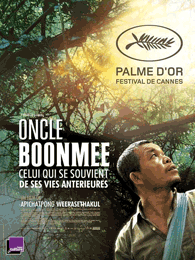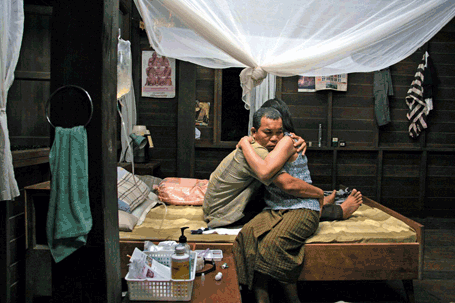
The film possesses many an Apitchatpong trademark: a sense of magical realism, as well as an irreverent take on the middle class and elites of Thai society. These two qualities exist simultaneously, yet never quite touching together.
The magic realism suffuses the entire film. It is in fact the glue that holds many meandering, unconnected and bizarre short stories together: Boonmee and the visitations of his dead wife, a catfish wooing a royal princess disfigured by time, a recollection of a dream of (once and) future Bangkok, a postlude with a bathing monk who splits into two. The irreverence? Only if you’re versed in Thai society and culture. If you know how and where to look, Apichatpong’s latest film feels like a constant stream of social commentary and jibes at Thailand’s ‘good society’ – the apathetic middle class, the corrupt aristocracy, the morally compromised monkhood, the junta and its paramilitary squads.
Possessing this double awareness may be troublesome: just how arty or ‘magic realist’ is a film if you discover that the poetic imagery and surreal sequences might just be there to advance a particular political criticism? How effective is social commentary when it is delivered under a fog of impenetrable arthouse technique? Has Apichatpong found that perfect balance in Uncle Boonmee? It’ll work if you feel it is neither shrill or obscurantist.
Thailand’s entry for the Best Foreign Film Oscar is a work that demands your attention and love.












 列印版本
列印版本









